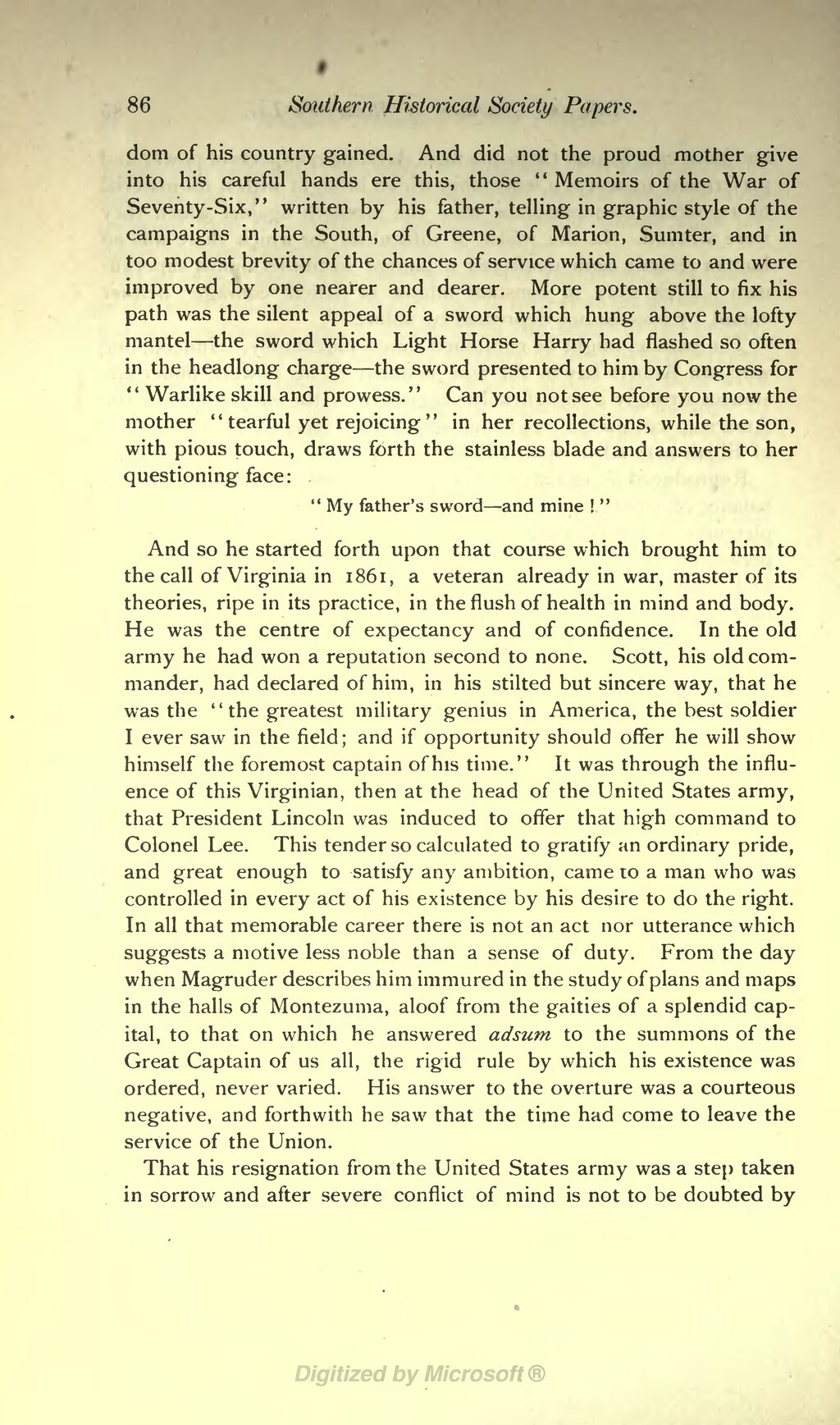86 Southern Historical Society Papers.
dom of his country gained. And did not the proud mother give into his careful hands ere this, those " Memoirs of the War of Seventy-Six," written by his father, telling in graphic style of the campaigns in the South, of Greene, of Marion, Sumter, and in too modest brevity of the chances of service which came to and were improved by one nearer and dearer. More potent still to fix his path was the silent appeal of a sword which hung above the lofty mantel the sword which Light Horse Harry had flashed so often in the headlong charge the sword presented to him by Congress for " Warlike skill and prowess." Can you not see before you now the mother " tearful yet rejoicing " in her recollections, while the son, with pious touch, draws forth the stainless blade and answers to her questioning face:
" My father's sword and mine ! "
And so he started forth upon that course which brought him to the call of Virginia in 1861, a veteran already in war, master of its theories, ripe in its practice, in the flush of health in mind and body. He was the centre of expectancy and of confidence. In the old army he had won a reputation second to none. Scott, his old com- mander, had declared of him, in his stilted but sincere way, that he was the " the greatest military genius in America, the best soldier I ever saw in the field; and if opportunity should offer he will show himself the foremost captain of his time." It was through the influ- ence of this Virginian, then at the head of the United States army, that President Lincoln was induced to offer that high command to Colonel Lee. This tender so calculated to gratify an ordinary pride, and great enough to satisfy any ambition, came to a man who was controlled in every act of his existence by his desire to do the right. In all that memorable career there is not an act nor utterance which suggests a motive less noble than a sense of duty. From the day when Magruder describes him immured in the study of plans and maps in the halls of Montezuma, aloof from the gaities of a splendid cap- ital, to that on which he answered adsum to the summons of the Great Captain of us all, the rigid rule by which his existence was ordered, never varied. His answer to the overture was a courteous negative, and forthwith he saw that the tinie had come to leave the service of the Union.
That his resignation from the United States army was a step taken in sorrow and after severe conflict of mind is not to be doubted by
